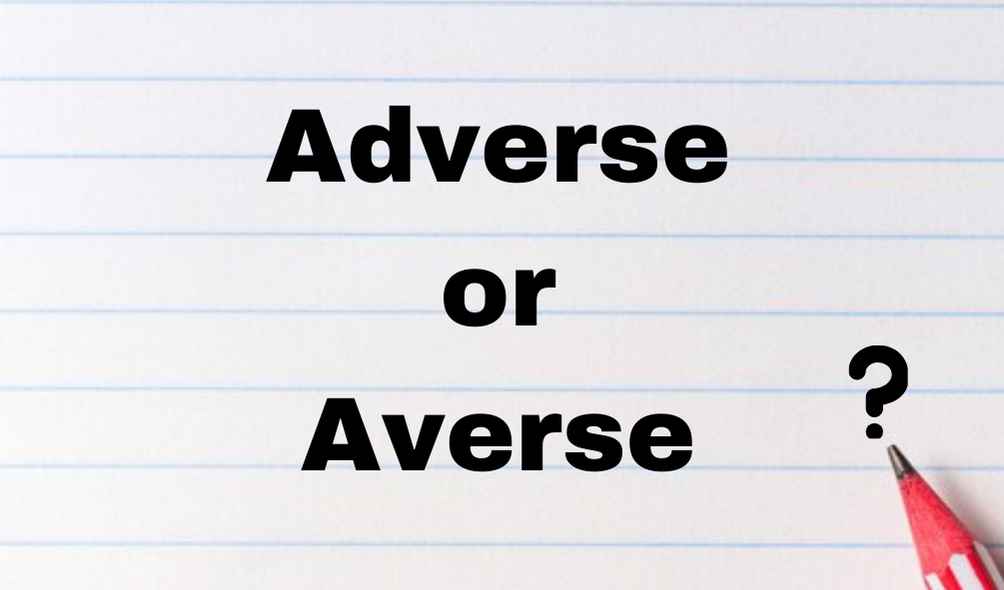Adverse or Averse Definition

In English language, certain words may sound alike but have different meanings. Two such words are “adverse” and “averse.” Understanding their meanings and how to use them correctly is essential for clear communication. In this easy guide, we’ll explore the definitions of “adverse” and “averse” with simple grammar and dictionary examples to help you grasp their distinctions effortlessly.
Adverse (Adjective):
- Definition: “Adverse” describes something unfavorable or harmful. It refers to situations, conditions, or effects that are detrimental or hostile.
- Example Sentence: The adverse weather conditions forced the cancellation of the outdoor event.
- Grammar Example: In the sentence “She faced adverse circumstances,” “adverse” is used to describe the unfavorable conditions encountered.
Averse (Adjective):
- Definition: “Averse” indicates a strong feeling of opposition, dislike, or reluctance towards something. It refers to personal preferences or attitudes.
- Example Sentence: He is averse to taking risks and prefers a cautious approach in business.
- Grammar Example: In the phrase “She is averse to conflict,” “averse” expresses her dislike or reluctance towards engaging in conflicts.
Understanding the Difference:
- Use “adverse” to describe harmful or unfavorable conditions or effects.
- Use “averse” to describe a person’s strong dislike or reluctance towards something.
Grammar and Dictionary Examples:
- Grammar Example: “The adverse effects of pollution on public health are well-documented.”
- Dictionary Example: According to the Cambridge Dictionary, “adverse” means “having a negative or harmful effect on something.”
- Grammar Example: “She is averse to change and prefers to stick to familiar routines.”
- Dictionary Example: Merriam-Webster defines “averse” as “having an active feeling of repugnance or distaste.”
Read also: Understanding “Thought” and “Taught”: A Simple Guide
Conclusion:
In summary, “adverse” and “averse” may sound similar, but they have distinct meanings. “Adverse” describes harmful conditions or effects, while “averse” indicates a personal dislike or reluctance towards something. By using simple grammar and dictionary examples, you can easily differentiate between these two words and use them accurately in your communication.